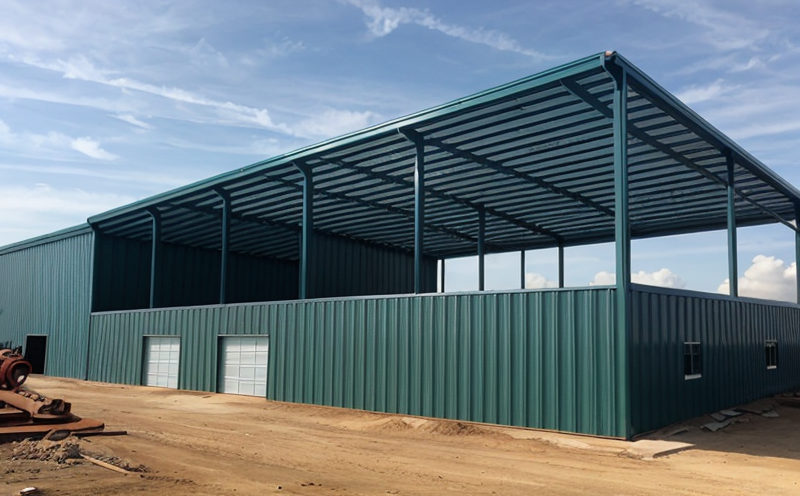ASTM D790 Flexural Durability Testing for Smart Device Materials
The ASTM D790 standard is widely recognized as a pivotal method in evaluating the flexural properties of plastic materials. This service focuses on applying this standard specifically to the materials used in smart home and IoT devices, ensuring that these materials meet stringent durability requirements under various stress conditions.
Smart home devices like thermostats, security systems, and voice-activated assistants often incorporate advanced plastics that must withstand a wide range of environmental stresses. The ASTM D790 test is crucial for determining whether these materials can endure the mechanical stresses they will encounter during normal use and in harsh environments such as cold or hot climates.
The testing process involves preparing specimens made from the plastic material in question, then bending them until failure occurs. This flexibility test provides critical insights into the material's strength and durability, which are essential for ensuring the longevity of smart home devices. By adhering to ASTM D790 standards, manufacturers can ensure that their products meet industry benchmarks.
The flexural strength measured through this method is a key performance indicator (KPI) in assessing materials used in these applications. The test helps identify which plastics are best suited for specific environments and applications, thereby improving product design and reliability.
Understanding the nuances of ASTM D790 testing requires an intimate knowledge of material science and mechanical engineering principles. Our team of experts ensures that every aspect of the test is conducted according to the standard's specifications, from specimen preparation to data interpretation.
The results of this testing are critical for quality managers, compliance officers, and R&D engineers working in the smart home sector. By ensuring materials meet ASTM D790 standards, these professionals can enhance product performance, reduce warranty claims, and improve overall customer satisfaction. For procurement teams, this service helps select suppliers who provide high-quality materials that adhere to industry standards.
The test is particularly important for IoT devices which are subject to continuous stress due to rapid movements and vibrations during operation. The durability of these materials directly impacts the reliability and longevity of the device. By focusing on ASTM D790 compliance, manufacturers can ensure their products meet or exceed expectations, thereby gaining a competitive edge in the market.
Our laboratory adheres strictly to ASTM D790 guidelines, providing accurate and reliable data that helps stakeholders make informed decisions about material selection. This level of precision is crucial for maintaining high-quality standards across the smart home ecosystem.
Applied Standards
The ASTM D790 standard is widely recognized as a benchmark for evaluating flexural properties in plastic materials. It specifies the procedures for testing the flexural strength and modulus of plastics under specified conditions, which are particularly relevant to smart home devices.
In this service, we apply ASTM D790 standards specifically to the materials used in these devices. The key aspects of the standard that are most applicable include:
- Specimen preparation: Detailed instructions on how to prepare specimens for testing.
- Mechanical loading: Guidelines on applying stress to the specimens until failure occurs.
- Data interpretation: Methods for analyzing and reporting test results.
The ASTM D790 standard ensures that all tests are conducted uniformly, allowing for consistent and reliable data. This uniformity is crucial in a sector where compliance with international standards is paramount. By adhering to these guidelines, we can provide clients with accurate test results and ensure their products meet the highest quality standards.
Environmental and Sustainability Contributions
The ASTM D790 flexural durability testing service not only ensures product reliability but also contributes positively to environmental sustainability. By selecting materials that pass this rigorous test, manufacturers can enhance the durability of smart home devices, reducing the frequency of replacements and repairs.
This extended lifespan translates into reduced waste generation, as fewer devices end up in landfills prematurely due to material failure. Furthermore, by ensuring high-quality materials are used, we promote a circular economy where resources are used efficiently and responsibly.
The ASTM D790 test is particularly relevant for the smart home sector because it helps identify which plastics can withstand the environmental stresses encountered in these devices. This includes exposure to temperature variations, vibrations, and other mechanical stresses that occur during normal use. By ensuring materials meet these standards, manufacturers can contribute to a more sustainable future.
Our laboratory's commitment to ASTM D790 testing aligns with broader sustainability goals within the industry. We encourage our clients to adopt sustainable practices by selecting materials that not only pass this test but also have low environmental impacts throughout their lifecycle. This approach supports the development of eco-friendly smart home devices that are both reliable and environmentally responsible.
Use Cases and Application Examples
The ASTM D790 flexural durability testing service is applicable to a wide range of materials used in smart home and IoT device applications. These include:
- Battery casings for power efficiency and safety.
- Sensors integrated into walls or ceilings for environmental monitoring.
- Connectors that ensure reliable data transmission between devices.
For each of these components, the ASTM D790 test is crucial in ensuring that they can withstand mechanical stresses without failing. This reliability is essential for maintaining optimal performance and preventing failures that could compromise user experience or safety.
Consider a smart thermostat as an example. The plastic housing of such devices must be robust enough to endure frequent temperature cycles, vibrations from nearby machinery, and potential impacts during installation or use. By undergoing ASTM D790 testing, these materials can demonstrate their ability to handle such stresses without compromising the overall performance of the device.
Similarly, in IoT applications, where data integrity is paramount, reliable connectors are critical. Testing these components using ASTM D790 ensures that they meet the necessary strength and durability requirements, thereby enhancing the reliability of the entire system.
The results of this testing are not only beneficial for material selection but also extend to broader sustainability efforts. By ensuring materials can last longer in harsh environments, we reduce waste generation and promote a more sustainable approach to product design and manufacturing.





